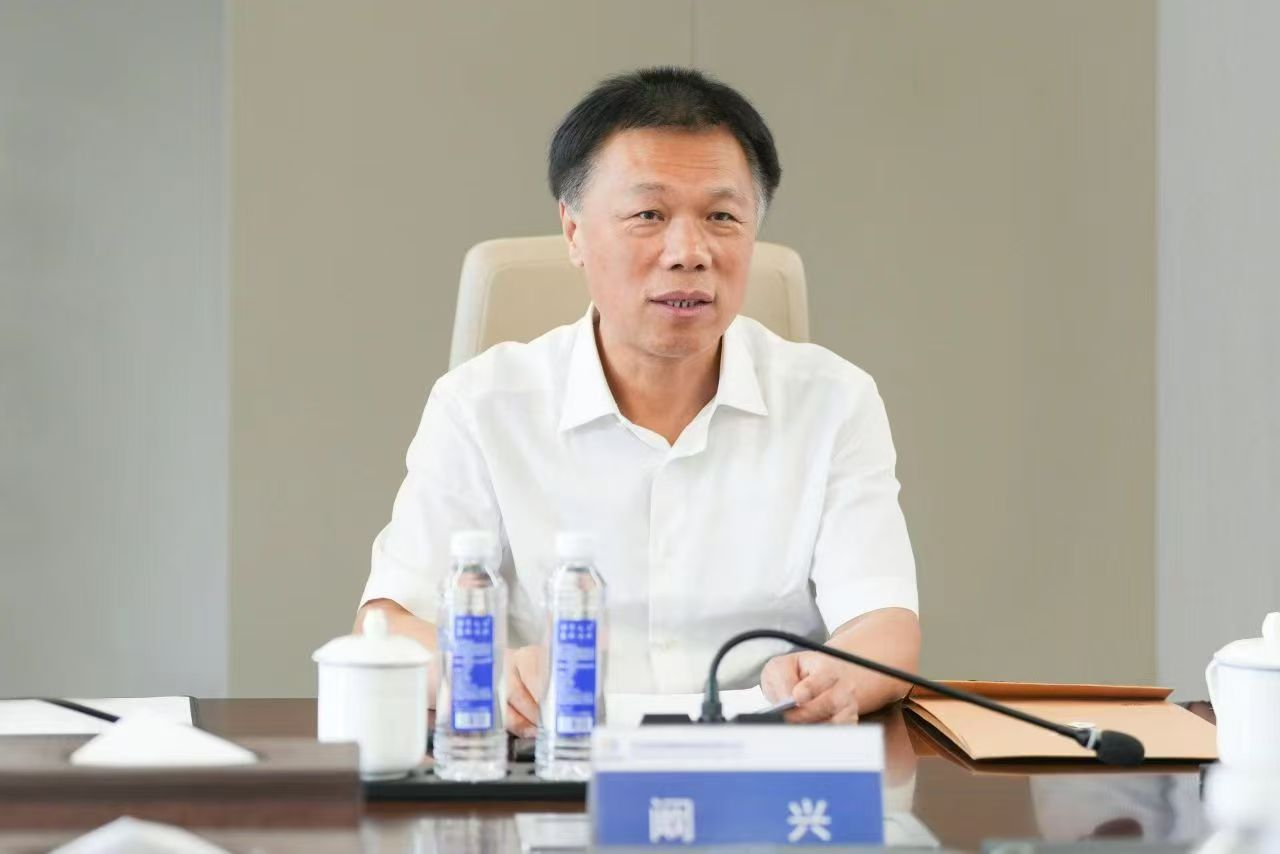On the afternoon of May 13, an entourage led by Kan Xing, Deputy Party Secretary and President of Beijing Energy Holding (BEH), visited Beijing Energy International (hereinafter referred to as “the company”) for research and discussions. The entourage included Vice President Chen Guogao and Vice President Zhang Fengyang of BEH.

During the meeting, the company’s management provided a comprehensive report covering several key areas: implementation of critical tasks, progress on major projects, and resolution of historical issues. Participants engaged in thorough discussions about the challenges facing the company’s development and corresponding solutions.

Kan Xing acknowledged the company’s significant contributions to BEH’s high-quality development during the 14th Five-Year Plan period. He praised the company’s steady progress in international expansion, continuous improvement of institutional mechanisms, and notable enhancement of innovation capabilities and growth momentum.
For future work, Kan Xing outlined three priority areas:
1. Optimizing Strategic Layout
Unwaveringly pursue the expansion and strengthening of overseas markets. It is essential to closely monitor key milestones in project development and establish efficient communication mechanisms to foster consensus and consolidate collective strength. Hydropower development should be approached with a multidimensional and integrated strategy, making full use of available resources while formulating well-founded, scientific development plans. In managing base projects, focus on meticulous, full-process execution with the aim of building exemplary benchmark models. At the same time, uphold an innovative mindset, remain aligned with evolving market demands and industry trends, continuously refine the business structure, and integrate internal and external resources to drive sustainable growth;
2. Adhering to Market-Oriented Operations
Adopt a light-asset operational model and deepen diversified equity management to ensure structural flexibility. Streamlining management hierarchies will enhance organizational fitness and core competitiveness. Continued reform of systems and mechanisms is crucial to unlocking growth potential, enabling the company to evolve into a flexible, open, and innovation-driven market-oriented enterprise.
3. Strengthening Business Management
Strengthening engagement with all shareholders is key to developing a sound and actionable capital increase plan based on proportional contributions. A comprehensive assessment of asset quality, profitability, growth potential, and future capital requirements must be conducted to support strategic decision-making. Aligned with the company’s strategic objectives, actively advancing the introduction of strategic investors will help optimize the equity structure, enhance market competitiveness, and improve overall profitability.
Chen Guogao emphasized that the company should align with BEH’s established strategic direction, continuously enhance its internal driver, and foster a team that is capable of meeting challenges head-on with high morale and determination. Strategic focus should be placed on designing well-rounded plans encompassing operational accumulation, equity financing, and strategic investment. Further efforts should be made to leverage the “1+3+N” financing support framework, deepen collaboration with BEH’s internal financial entities, and accelerate the revitalization, monetization, and optimization of assets. Proactive steps should be taken to attract strategic investors, while promoting the parallel development of both public and private funds, and actively exploring innovative paths for light-asset development. Additionally, the pace of accounts receivable collection should be increased, and fund pooling efficiency should be improved. Additionally, the construction of financial shared service system interfaces should be expedited to ensure seamless integration with business systems. Strengthening asset evaluation and filing management, ensuring full-process communication and coordination, and continuing to reduce legacy burdens are also essential. Problems must be promptly identified and addressed, with parallel efforts to resolve historical issues and streamline procedures for new project investments.
Zhang Fengyang emphasized several key priorities: strengthening communication with municipal authorities such as the State-owned Assets Supervision and Administration Commission, the Development and Reform Commission of Beijing Municipality and relevant departments of BEH; accelerating the implementation of major initiatives such as “Green Power to Beijing” and “Jilin’s Power to Beijing” to raise the share of renewable energy consumption; and improving coordination between thermal power and energy storage projects while exploring the feasibility of a unified operational model under BEH. He also called for a dual-track approach in advancing the “Inner Mongolia Power to Beijing” initiative to ensure its inclusion in the national 15th Five-Year Plan. Continued expansion in hydropower investment should be pursued, with proactive efforts to secure high-quality resources. The company must maintain a profit-oriented mindset, refine its overseas market strategy, enhance project-specific market and investment return analyses to build differentiated energy projects, and fully develop a forward-looking 15th Five-Year Plan to support BEH’s high-quality growth.
The meeting was attended by relevant department heads from BEH and the company’s leadership team, including Chairman Zhang Ping, Party Secretary and Trade Union Chairman Liu Guoxi; Vice President Liu Dongsheng, Vice President Huang Hui, Vice President Jia Geng, Vice President Wang Liuhu, and Vice President Wu Chaoke; and Zhu Shengbo, Secretary of the Discipline Inspection Commission, attended the research and discussion session.